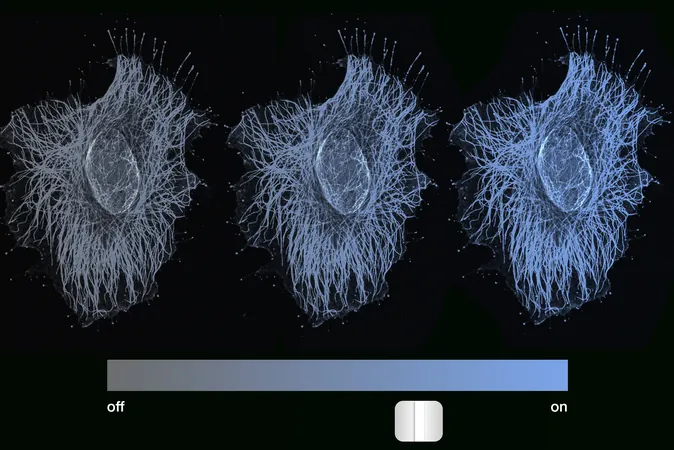
Revolutionary Study Reveals Cells Have a 'Dimmer Dial' Memory, Not Just On/Off Switches!
2025-09-09
Author: John Tan
A Game-Changer in Cell Biology!
Ever wondered how our cells maintain their distinct identities? A newly published study from MIT reveals that cell memory isn't as simple as flipping an on/off switch. Instead, cells possess a complex 'dimmer dial' mechanism, allowing for a spectrum of gene expression.
The Role of Epigenetic Memory
Traditionally, scientists believed that epigenetic memory locked genes in two states: activated or repressed. This understanding laid the groundwork for why, for example, a skin cell doesn't magically transform into a brain cell. However, researchers have uncovered a more nuanced approach: gene expression can exist at various levels between these extremes.
The Surprising Findings from MIT
In their groundbreaking research published in Cell Genomics, the MIT engineering team, led by Professor Domitilla Del Vecchio, demonstrated that a single gene's expression could be set along a continuous spectrum in different cells. Rather than simply turning genes on or off, cells can maintain their identities in a more fluid state.
Beyond Conventional Wisdom
Instead of committing fully to either state, cells could remain in an in-between condition, which means there may be more hidden cell types in our bodies than previously understood. These cell types could play crucial roles in health and disease.
How They Did It
Using hamster ovarian cells, the researchers engineered a gene to express at various levels—from fully on, to fully off, and everything in between. They tagged the gene with a fluorescent marker that indicated its expression level. Over five months, these cells maintained their varied expressions, signifying the analog nature of cell memory.
Implications for Future Research
This discovery opens the door to new fields of synthetic biology, where scientists could manipulate gene expressions with precision—much like tuning a radio. The research also provides insights into persistent changes in cells, such as those seen in therapy-resistant tumors.
A New Perspective on Human Complexity
According to Del Vecchio, this analog memory may help explain one of the foundational aspects of human complexity. With more research, this knowledge could transform how we approach diseases and treatments, offering more effective strategies to tackle health issues rooted in cell memory.
Support for Groundbreaking Research
This innovative study received backing from several esteemed organizations, including the National Science Foundation and the U.S. Office of Naval Research. Their support has been instrumental in pushing the boundaries of our understanding of cellular mechanisms and epigenetic memory.





 Brasil (PT)
Brasil (PT)
 Canada (EN)
Canada (EN)
 Chile (ES)
Chile (ES)
 Česko (CS)
Česko (CS)
 대한민국 (KO)
대한민국 (KO)
 España (ES)
España (ES)
 France (FR)
France (FR)
 Hong Kong (EN)
Hong Kong (EN)
 Italia (IT)
Italia (IT)
 日本 (JA)
日本 (JA)
 Magyarország (HU)
Magyarország (HU)
 Norge (NO)
Norge (NO)
 Polska (PL)
Polska (PL)
 Schweiz (DE)
Schweiz (DE)
 Singapore (EN)
Singapore (EN)
 Sverige (SV)
Sverige (SV)
 Suomi (FI)
Suomi (FI)
 Türkiye (TR)
Türkiye (TR)
 الإمارات العربية المتحدة (AR)
الإمارات العربية المتحدة (AR)